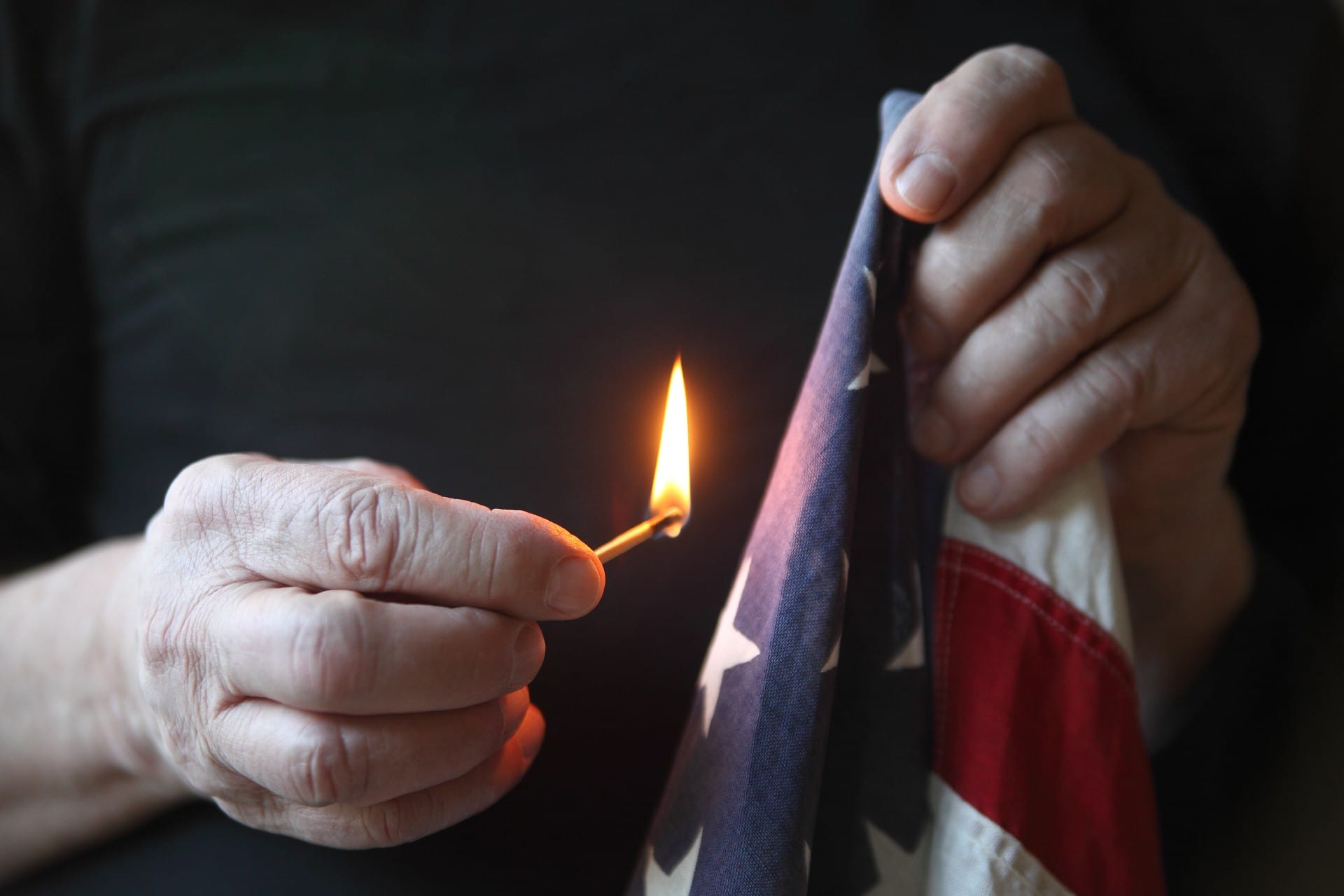
Can Protestors Be Arrested for Burning the American Flag?
In November 2016, shortly after the presidential election, Donald Trump posted on Twitter that nobody should be allowed to burn the American flag and that anyone caught burning one should be punished. He suggested that flag burners should be penalized by a loss of their citizenship or by spending a year in jail. However, the official United States Flag Code states that the preferred way to dispose of an American flag is to burn it. One could argue that Trump was referring only to people burning flags in protest, but he did state that nobody should be allowed, not that only protesters should not be allowed.
With Flag Day approaching on June 14th, many Americans are preparing to hold flag disposal ceremonies. Many of these ceremonies will include flag burnings; and, although Trump is no longer president, we may wonder what rights we have when it comes to the American flag and burning it during a protest.
Can you actually lose your United States citizenship or spend a year of your life in jail because you set fire to an American flag in protest?
Is it Illegal to Burn an American Flag in Florida?
In 1984, Gregory Lee Johnson set fire to an American flag outside of the Republican National Convention in Dallas, Texas. Johnson burned the flag in protest of the Reagan Administration. At the time, desecration of the American flag was illegal in 48 out of the 50 states–including Texas.
Johnson was arrested and charged with violation of a Texas law that prohibited the vandalization of respected objects. He was convicted by a Texas court, but he appealed with the argument that his actions were protected by the First Amendment. The Supreme Court agreed to hear his case, and in 1989, Texas v. Johnson ruled that flag burning constitutes symbolic speech protected by the First Amendment.
Since burning a flag as a political protest can be considered “expressive conduct,” it is entitled to protection under the constitution. The Supreme Court declared that an action could be considered symbolic speech, and therefore protected by the First Amendment, when:
- The person intended to send a particular message through their action
- It is very likely that a viewer would understand the intended message
Although the 1989 Supreme Court ruling invalidated laws in 48 states that prohibited burning American flags, the issue remains controversial. Congress has debated the Flag Desecration Amendment multiple times over the years, with the most recent attempt failing by one vote in June 2006.
Protect Your American Right to Protest with an Orlando Defense Attorney
Burning an American flag is legal no matter what state you are in, but many people still find this expression of free speech to be offensive. If you face legal issues due to burning an American flag, Umansky Law Firm can guide you through the legal process and ensure that your American freedoms are always protected.
With over 100 years of combined legal experience, Umansky Law Firm knows how to build a strong defense for your case. Call our office or complete our contact form for a free case evaluation.



